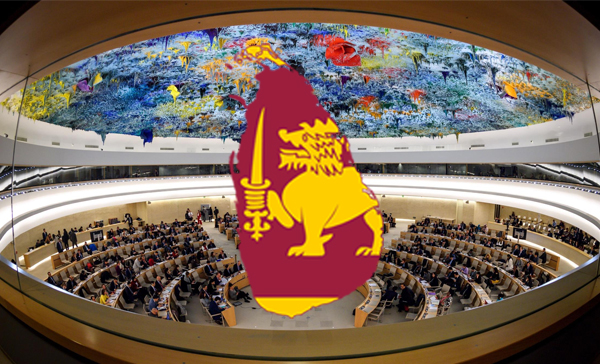Sri Lanka is expecting to receive lesser votes in the event of a resolution that is not agreed upon with core-sponsors in the upcoming United Nations Human Rights council (UNHRC) due to a change in member countries, Foreign Minister Ali Sabry said on Monday.
The 51st UNHRC session will be held from Sept. 12 – Oct. 7 in Ganeva and diplomats have said Sri Lanka is likely to face a new resolution from the same core sponsors who tabled the resolution in March 2021.
“When we compare the current composition and the 2021 composition, we might mostly get fewer
votes than what we got in 2021,” Minister Sabry told a media briefing on Monday held at the ancient Foreign Ministry building.
In the 2021 UNHRC session, 22 countries voted in favor of passing the resolution which allowed the UN to gather evidence on the past human rights violations committed by Sri Lanka against 11 including China, Pakistan and Bangladesh while 14 countries including India, Nepal and Japan abstained.
Sri Lanka has refused to cooperate with the resolution citing the external evidence gathering is against the country’s sovereignty and thus against the constitution.
Sabry said the island nation will cooperate with resolution as long as they would not compromise with the Sri Lanka’s sovereignty.
“Our focus is to bring lasting solutions and, in that regard, our final program will be a truth seeking
mechanism that is transparent and acceptable by both the victims and alleged perpetrators.” he said.
Sri Lanka’s credibility in addressing the past human rights violations has been questioned as it has repeatedly failed to fulfill South African-style truth seeking mechanism which it originally promised in 2016.
Successive Sri Lankan governments have bought time to address the concerns raised by the international community over its alleged human rights allegations mainly in the final stage of a 26-year civil war in which thousands of ethnic minority Tamils were killed, but the country is yet to fulfill those promised measures.
“We are looking at lasting and wholistic solutions to the grievances of all those who have suffered due
to the conflict,” he said referring to all ethnicities.
Since the last UNHRC session in March, Sri Lanka has gone through a political crisis with the uprising of anti-government protesters that has resulted in the change of government amid resignation of then present Gotabaya Rajapaksa and his brother, then Prime Minister Mahinda Rajapaksa.
The new President Ranil Wickremesinghe has been now alleged of cracking down on protesters.
Experts have previously warned that Sri Lanka will face a tougher session in September as the UNHRC because it has failed to protect and ensure the rights of its citizens.


